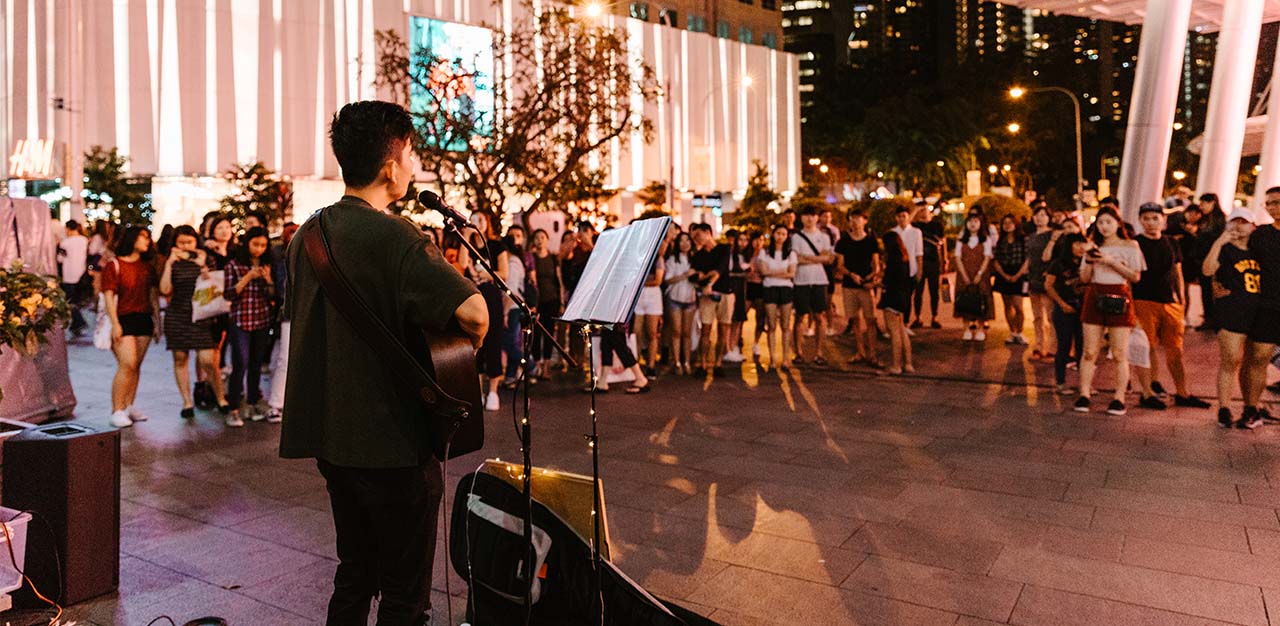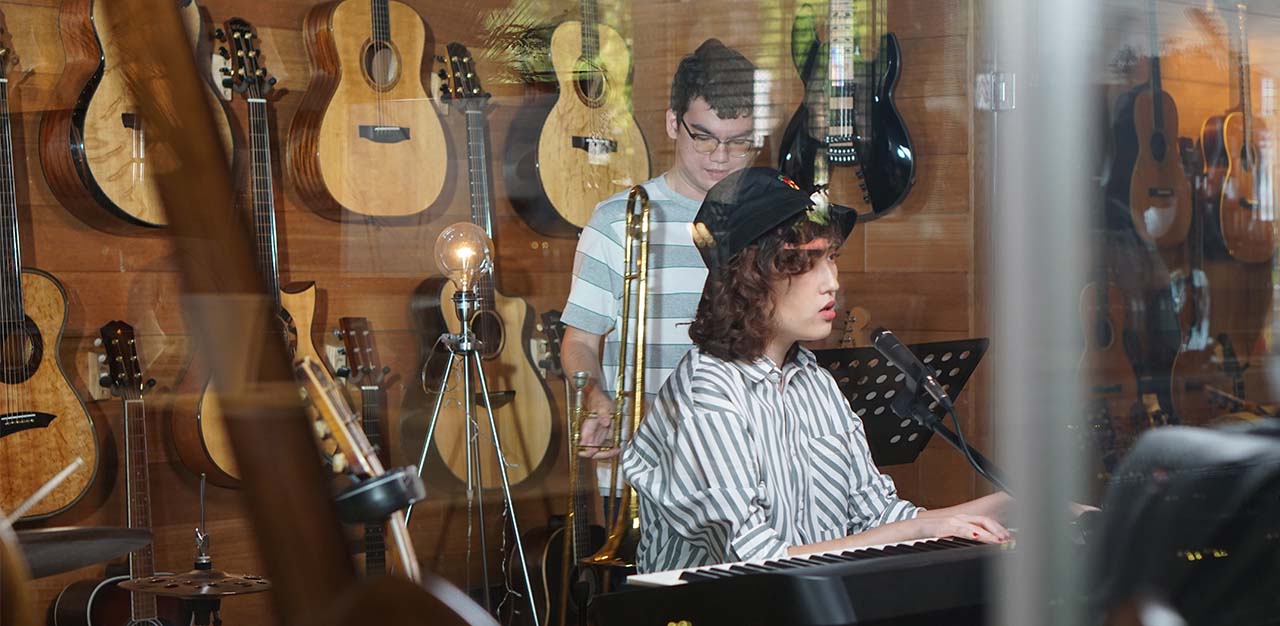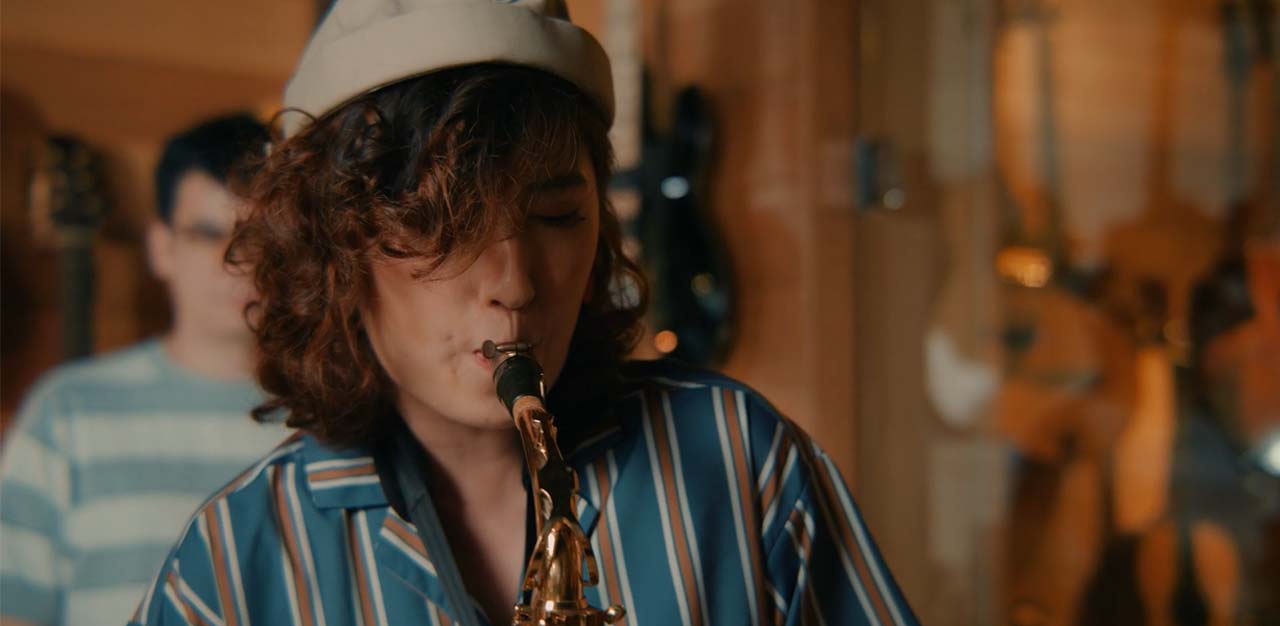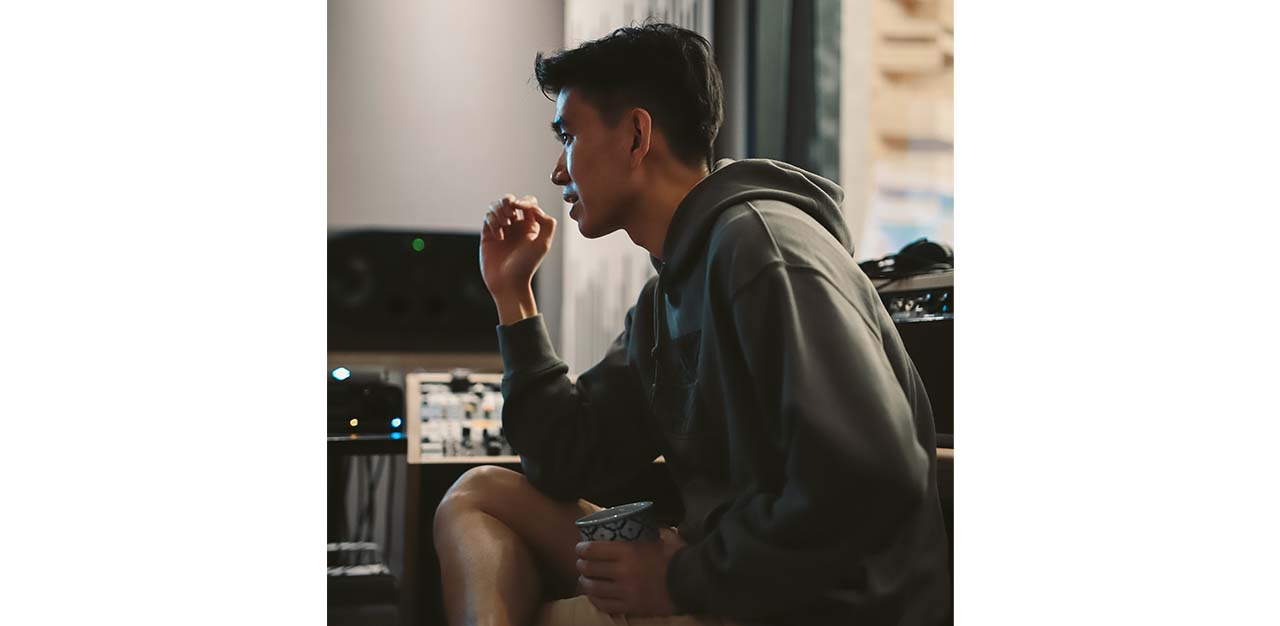It has been almost two years since Singaporean singer-songwriter Jason Yu busked on the streets of Orchard Road. In that time, the pandemic happened and threw a wrench in his life, forcing him to give up many gig performances and putting a strain on his finances. “Before Covid-19, I honestly felt being a singer wasn’t all that hard,” he says.

Having first dipped his toes at busking in 2016 after serving National Service, Mr Yu decided to take a leap of faith to become an independent music artiste. For him, the time spent busking is not time wasted. One of the lessons he gleaned from serenading people by the streets was “how to perform and interact with a crowd”.
“It can be challenging trying to capture their attention, especially when they don’t know you and have to go about their day,” says the 27-year-old.
In 2018, he released his critically acclaimed first single ‘Hearts Release’ which has since amassed over 1.2 million streams on Spotify, before taking a two-year hiatus. His 2020 comeback second single ‘Now I Know’ is an emotive pop ballad on grief, turmoil and self-realisation, which springboarded him back into the limelight as a young musician with a penchant for penning relatable narratives.
Bedroom muses
Like many young musicians such as High School Musical: The Series’ actress turned teenage pop sensation Olivia Rodrigo and pop savant Billie Eilish, Mr Yu creates music from the confines of his bedroom. There, he reveals, is where he ignites his creative fervour and where he allows himself to be vulnerable — a phase or a rite of passage he gets into when journaling emotive lyrics or constructing melodies. He says, “I am not always comfortable being vulnerable when collaborating with fellow local musicians.”
The same can be said for independent musician who wants to be known by her professional handle Juniper, also 25. Her foray into the music scene began in May this year with the launch of her debut single and MV ‘Modern Slaves’.
“Like writing a diary, (creating music in my bedroom) is a very personal experience,” Juniper says. “My feelings — be it sadness, anger, joy or love — are translated into words without inhibition or pressure from anyone to produce music in their direction.”
Although Juniper has never taken to busking, she is no stranger to performing in front of a crowd. Armed with a strong foundation in music theory, Juniper is well versed in a myriad of musical instruments: piano, synthesiser, saxophone, bass and even harp. Some of these were used when she performed at wedding gigs and university concerts. Her recent single ‘The Best I Can’ even features her playing both the piano and saxophone in a self-arranged jazz solo.
For the two Singaporean musicians, the process of composing an original piece is cathartic. Whether it is conjuring up emotive lyrics or pricking up their ears for memorable riffs, songwriting is as intentional as it gets.
Quoting acclaimed filmmaker Martin Scorsese, Juniper says: “The most personal is the most creative. It is really important that I am honest in my writing and that I am being personal about it.”
Concurring, Mr Yu says: “When it comes to songwriting, I have to be totally honest. I try my best to draw from my emotions and experiences whenever I am making music.”
Self-censorships
Still, it can sometimes be equally difficult to be honest.
“I tend to get very confrontational in my music,” Juniper, who has several unreleased explicitly themed pieces written, says. “Sometimes, I worry that whatever I have written may offend others and I begrudgingly practice self-censorship.”
Even so, she remains experimental and attempts to dole out content that is expository in nature. In ‘Modern Slaves’, she highlights the realities of capitalist corporate culture, a startling wake-up call to anyone who has been devoured by the all-work-no-play nature of work. While her second single ‘The Best I Can Do’, which was released earlier in August, is a jazzy and mischievous number that describes a forbidden love interest.
Recalling a time when his university lecturer called him out for using certain words, specifically “man” in the lyric “I am just a man” which, according to the lecturer, was slightly misogynistic, in his music assignment during his time in Melbourne, Australia, Mr Yu says it has taught him the importance of being inclusive and mindful of the climate when penning lyrics.
“Although my songs are mostly deeply personal, I still think they are simple concepts,” Mr Yu says. Case in point, his third single ‘Anyone’ is a heartfelt and relatable number that describes the singer-songwriter’s attempt at finding his sense of belonging and direction in life. One YouTuber, who goes by the alias ‘Master Aki’, commented on his lyric video: “This song really speaks to me deeply. I’m 27 right now and I feel like it sums (up) most of my life so far! ”
The cost of making their first MVs and financial sustainability

To be an independent musician today is to constantly push boundaries. For Mr Yu and Juniper, this means being hands-on. The duo, in their separate pursuits, funded their first music video — ‘Modern Slaves’ for Juniper and ‘Hearts Release’ for Mr Yu — with their own savings. The entire production, which comprises casting, hiring a production crew, venue rental, food, props and more, can scale from the low thousands and beyond.
Fortunately for Juniper, who is an educator, asking her close friends to star in the music video helped save some costs. Juniper was lucky to have found a production company that took interest in her music and MV concept. The producer even helped create and paint oriental masks for the project.

To help fund the cost of the production, Juniper also utilises her knowledge of the stock market to make a considerable sum. The combination of a musician-trader would seem unlikely and unique, but for Juniper, it was a clever way of tiding over that period. She says: “A musician does not always have to be broke, and we can stay away from these long-drawn stereotypes if we play our cards right.”
Even so, she still felt vulnerable when ‘Modern Slaves’ debuted on YouTube. “I was putting myself out there for people to judge,” she says.
Mr Yu, who was overseas then, decided to make the most out of Melbourne’s scenes and invested around $5,700 on the project. “That’s a lot of money,” he says. According to Mr Yu, many independent musicians are forking out money to fund their own passion, albeit there is a growing group that relies on crowdfunding to seed their music campaigns.
Therein lies the question: Can you earn money as an independent musician?
The answer, as it turns out, is both yes and no.

According to Mr Yu, before the pandemic hits, a bulk of his income would come from gigs he was engaged to perform. They run the gamut from charity events and dinner and dances, to car launches and weddings. Like Mr Yu, Juniper sometimes performs at weddings, where she can earn between $500 and $1,000 per gig.
But it is a different story today.
“My source of income is pretty random these days,” Mr Yu says. “I am getting way fewer gigs than before and I have been struggling to make music sustainable.”
The music industry here has seen multifold transitions. Gone are the days when a busker would sing on the streets and get eager passersby to purchase a CD or two. Instead, thanks to streaming services such as Apple Music and Spotify, consumers today stream music free or for a small subscription fee.
In between brand endorsements and doing some pre-recorded shows, Mr Yu reveals how a small portion of his income now comes from streaming music. He says: “I get 0.07 cents for one stream on Spotify. I have not broken even on my production costs.”
“In the past, if you wanted to put music out there, you needed to have something physical ready,” Mr Yu says. “The streaming platforms of today are really accessible to aspiring musicians, but it can be difficult to earn money.”
Like Mr Yu, Juniper’s first payout from Spotify and Apple Music was a mere 60 USD, which was not sufficient to cover her production costs. Even so, she was surprised to have made money from streaming music.
Seeking overseas validation

Although not quite conspicuous, there is a drift that Singaporeans only care about artistes — think Stefanie Sun and JJ Lin, or Nathan Hartono and Joanna Dong — who made it big overseas. When asked about this, both Mr Yu and Juniper agreed that budding local musicians find it difficult to seek support from a local fan base.
“People who made it big overseas tend to make big news on local shores, and that is when people here pay attention. Which is kind of sad, really,” says Mr Yu. “If our own people don’t support us, who will? I sometimes get more support from our neighbours in Southeast Asia.”
But such an observation is not surprising at all. Singaporeans are generally not known to pay for arts. And given the benefit of the doubt, it may be surmised that we are not as adept at identifying prospective talents and simply seek overseas validation, such as overseas competitions like Sing! China, to affirm our beliefs.

On this note, Mr Yu, who is presently a finalist competing in the talent search competition SingVoice, adds: “Singaporeans do not support just for the sake of supporting.”
“I do not feel like it is anyone’s responsibility to fund local artistry,” Juniper says. “Why is it that someone should be held responsible for my growth as a musician? I would hope that my listeners tune in because they truly resonate with my music, rather than for the sake of supporting local music.
“To me, it is more important to support good music, rather than just local music. And if you like their music, show them a little love in the form of pennies.”
Join the conversations on TheHomeGround Asia’s Facebook and Instagram, and get the latest updates via Telegram.














